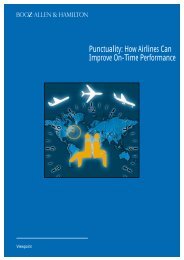The sentence
The sentence
The sentence
Create successful ePaper yourself
Turn your PDF publications into a flip-book with our unique Google optimized e-Paper software.
‘If I had been you/If I had been in your position’<br />
We often use If I had been you and If I had been in your position to describe what we<br />
would have done I someone else’s position<br />
If I had been you/If I had been in your position. I would have accepted their offer.<br />
‘If’ + past perfect + modal: ‘If he had known the facts, he might have …’<br />
When we use would have in the main clause, we are expressing as much certainly as<br />
possible:<br />
If he had known the facts, he would have told us what to do. (certain or nearly certain)<br />
if we don’t feel ‘certain’ enough to use would have, we can use another modal to say what<br />
would have been possible:<br />
if he had known the facts, he might have told us what to do. (it’s possible)<br />
if he had known the facts, he could have told us what to do. (he would have been able)<br />
D. Mixed conditionals; ‘unless/if … not’, etc.<br />
Mixed tenses in conditional <strong>sentence</strong>s<br />
We do not always have to stick rigidly to the ‘three types of conditional <strong>sentence</strong>s’. <strong>The</strong>re<br />
are occasions when we can use any tenses in if-clauses, depending on the context:<br />
If I am as clever as you say I am, I would have been rich by now. Type 1 + Type 3<br />
If you knew me better, you wouldn’t have said that. Type 2 + Type 3<br />
If I had had your advantages, I’d be better off now. Type 3 + Type 2<br />
‘If not’ and ‘unless’<br />
1. We can use if … not and unless in place of each other when we are saying ‘except if’.<br />
Unless is ‘stronger’ than if not and we sometimes use it in ‘threats’:<br />
If you don’t change your mind I won’t be able to help you. (= Except if you change …)<br />
Unless you change your mind, I won’t be able to help you (= Except if you change …)<br />
2. We cannot use unless in place of if not when if not doesn’t mean ‘except it’:<br />
I’ll be surprised if he doesn’t win. (if not doesn’t mean ‘except if’)<br />
She’d be better company if she didn’t complain so much. (if not doesn’t mean ‘except if’)<br />
3. We often use unless (never if … not) to introduce and afterthought:<br />
I couldn’t have got to the meeting – unless, of course, I had caught an earlier train.<br />
Conjunctions we can sometimes use in place of ‘If’<br />
We can introduce conditionals with conjunctions which do not always have exactly the<br />
same meaning as if, for example: assuming (that), even if, on (the) condition (that), provided<br />
(or providing) that, so long as, suppose and supposing:<br />
Assuming (that) it’s fine tomorrow, we’ll go for a swim.<br />
92




